As a mom of one amazing little human, I have restlessly sought for a mutual connection, for the true closeness to my child and worked my head out to find ways of keeping that bond while he grows and gets more intelligent, independent and becomes more of what he is.
By observing him starting to play on his own I realized that I would be most interesting to him if I could share his interests which reveal through play as it is basically what he does all the time. It always helps to put yourself in someone else’s shoes if you want to get the answer on how to find a way into someone’s world. And it was apparent that I myself would like to spend time and would feel close to people who sincerely are interested in me, my hobbies and activities I am passionate about.
So I started to mimic him in a play and got engaged in finding new ways to play together and make it fun and easy flow of time for both of us.
It warms my heart hearing him calling me for a play. I grab one of his toy cars and roar together on the shelves with his directions of where, how and when to drive and what sounds to make.
And then the explanations of the importance of playing caught my attention in all those parenting books I have read after becoming a mom.
The meaning of play in a child’s world
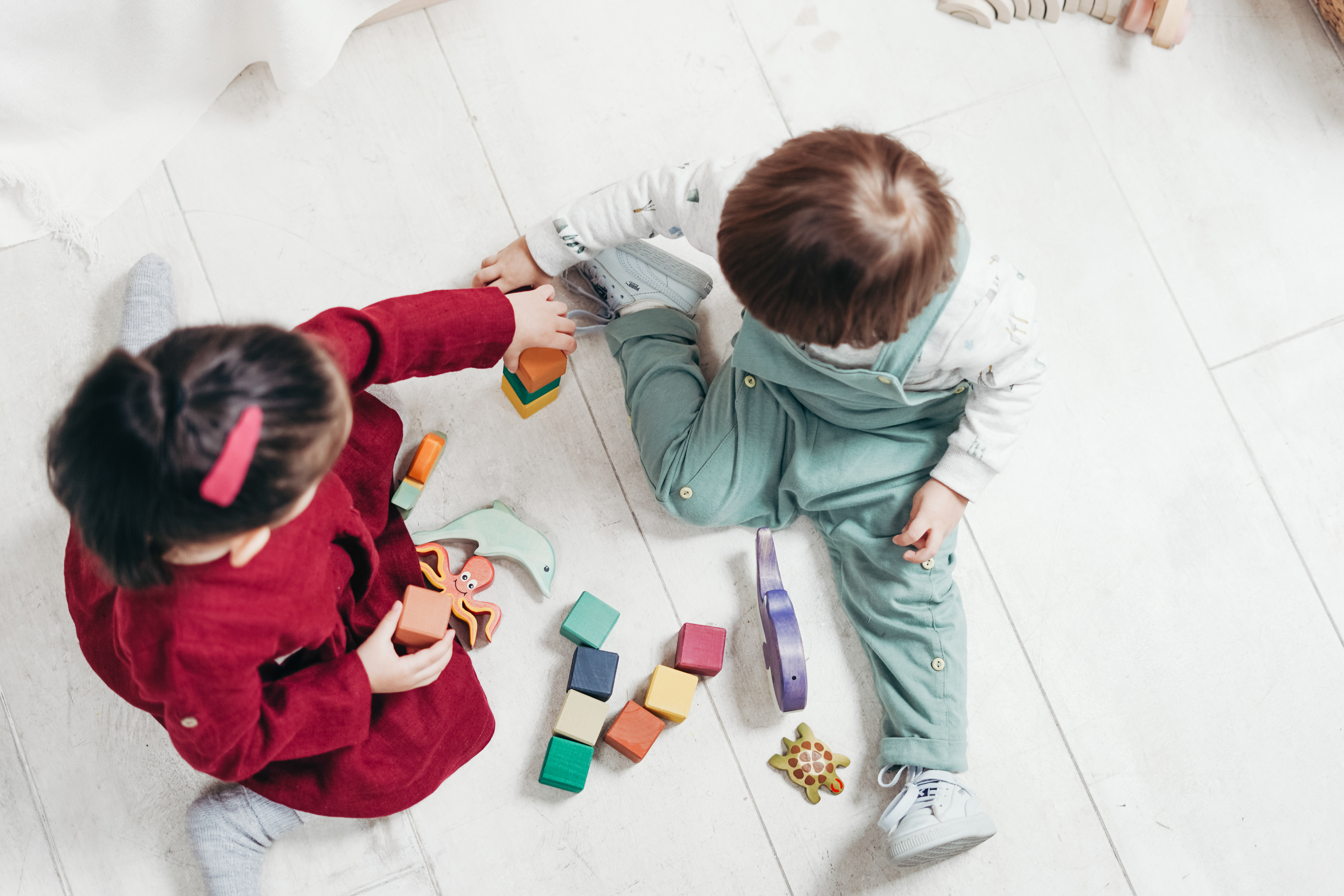
Children are untiring explorers whose workday begins with the opening of their curious eyes in the morning and ends after bedtime story when the tired little person finally gets asleep. They are observing, learning, analyzing, classifying, denying previous theories and it goes for the whole day. Restlessly they are trying to understand how this whole universe around them functions and why.
It is hard work those little fellows are doing. Even as it seems that they are only having fun and playing around. But playing is their way of exploring life and absorbing how things work. You can notice that they are playing situations that are unpleasant or scary to them such as going to kindergarten or to the hairdresser. They are repeating the same phrases of encouragement to their toys that they have heard from us.
Dr. Laura Markham, psychologist and author of Peaceful Parents, Happy Kids, says that playing helps children learn skills they will need later in life. With the help of play children process various emotions they have undergone during the day.
“The normal challenges of every day for a growing child of any age stimulate all kinds of feelings. Children release these emotions through play. Laughter, specifically, transforms our body chemistry by reducing stress hormones and increasing bonding hormones.
Kids are more physical than adults. When they get wound up emotionally, their bodies need to discharge all that energy. That’s one of the reasons they have so much more energy than we do, so they wear us out.” – Dr. Laura Markham, Playing with Your Child: Games for Connection and Emotional Intelligence
Playing regularly with your child makes you both happier and connected because laughing and giggling together creates a sense of closeness and mutual understanding. You both release all the stress and irritation suppressed during the day and feel energized. The child becomes more willing to collaborate. Dr. Markham also emphasizes that if you want to give a child a lesson the best way to do it is in the form of play.
It is also the shortest way to reconnect to your child after a long day at work or a quarrel you had in the morning. Dr. Markham points out that feeling connected is the way that leads towards mutual collaboration, feeling safe and willing to behave well. And if you feel the connection between you is weak or lost and your child shuts down from you and begins to oppose you in every step – then it is time to start a play. The physical games should suit the most – pillow fight or wrestling round.
“As long as your child is laughing, that game is working to alleviate anxiety and increase well-being. Don’t be surprised if your child wants to play these games over and over. They relieve stress, help your child master emotion — and believe it or not, they’re fun!” – Dr. Laura Markham, Playing with Your Child: Games for Connection and Emotional Intelligence
Iben Sandahl psychotherapist and educator, co-author of The Danish Way of Parenting, reveals that parents can achieve better behavior and enhance the child’s confidence through play. Children can gather successful experiences by overcoming various obstacles while playing in a free and relaxed environment and when they are challenged in reality they know that they can overcome difficulties and are more self-confident.
“Research shows that free play, alone or with friends, teaches children to be less anxious and more resilient, and it improves social skills. It also makes children feel like they are in control of their lives, which leads to greater autonomy and self-control.” – Iben Sandahl, Do You know why free play is important for your children?
Jessica Joelle Alexander, a co-author of The Danish Way of Parenting, says that it is a good way to grow the child’s own mindset and mistakes should even be embraced through play.
“If your child makes a mistake when you are playing a game together online, or building something in the real world, don’t tell them or fix it straight away, let them figure it out for themselves. Ask them why they are correcting it in the certain way. Help to support and not direct, it will help build resilience and a growth mindset. “ – Jessica Joelle Alexander, 10 principles for family play
Boys especially need physical games to discharge their emotions and energy. Ph.D. Michael G. Thompson and Ph.D.Dan Kindlon in their book Raising Cain: Protecting the Emotional Life of Boys emphasize that boys do have more physical energy and they become easily distracted and inattentive if they are not allowed to let all that energy out. Physically intensive outdoor games in their routine could benefit a lot to growing boys. They would use those games to let their heat out and become more able to cope with their emotions.
Free or guided play?
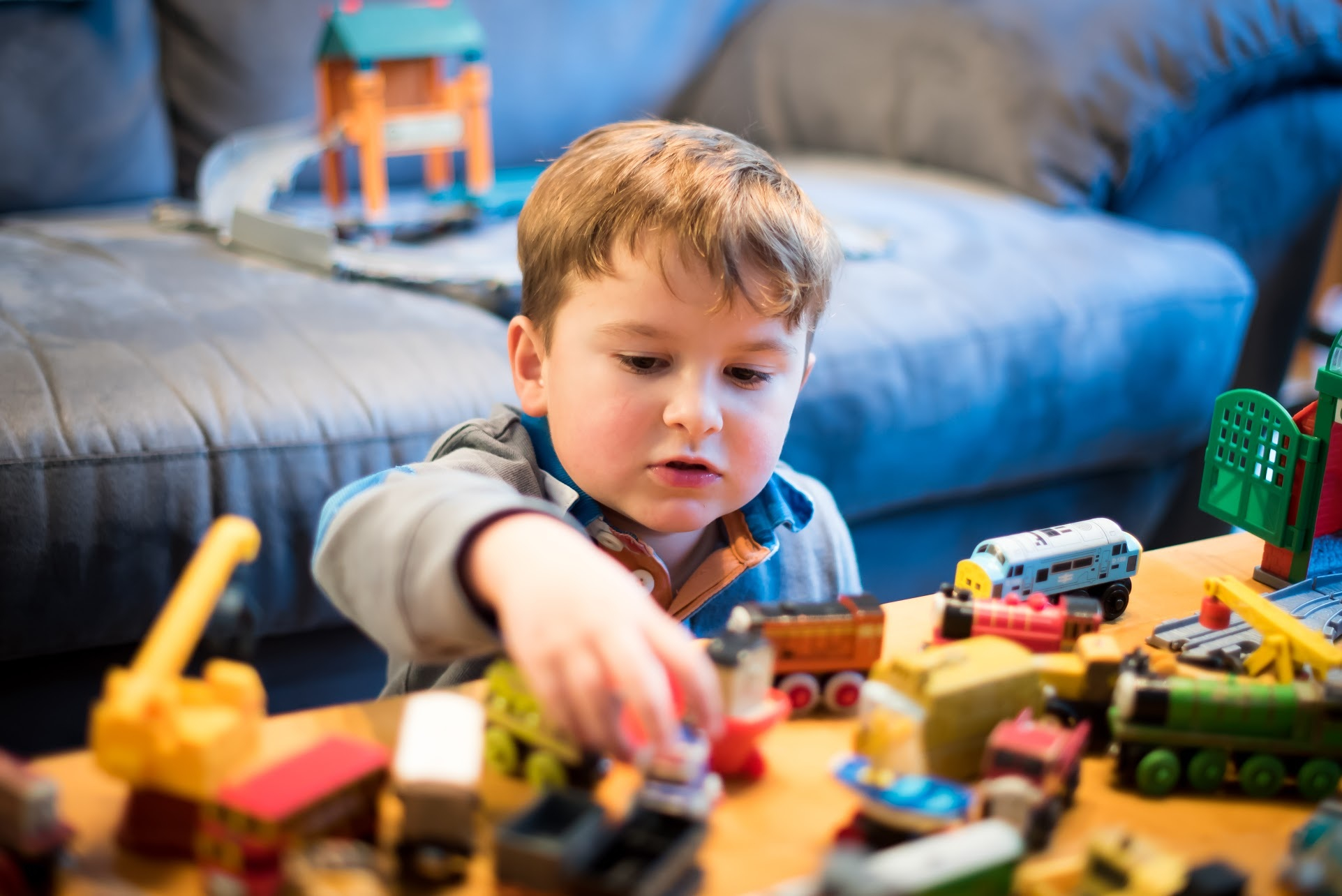
There are pros to both of the choices.
Guided play can be used to teach new things, explain feelings and emotions arising in different circumstances.
You can rehearse various difficult or upcoming new situations through play. When you can explain to a child why it is important to act in a certain way in e.g. kindergarten, at doctors, at the airport and so on.
You can use it to act a social scene you both witnessed and you did not have a chance to discuss it with your little one. You can teach social patterns by playing role plays and explain various social behavior and relation aspects.
By letting your child lead the play and set the scenario, you can know about his concerns, fears or joys. You can hear what you have told him and how did it resonate in his mind. You can find out what others said to him and if it had a big impact on his world. Children always repeat the same situation by playing it if it is unclear, interesting, new or even aching issues that they want to understand and “play out” to be able to absorb it properly.
Free play sometimes may seem a pointless way to spend time. Grown-ups often think that they are not doing anything important while left to roar their toy cars or dig holes together with other kids on the beach. It is vital for children to have the possibility to play the games they want and the way they want. With no directions, indications, and signs of “real” education. Free play is considered to be very educational and essential for the development of a child as a whole personality.
“Play has been proven to teach self-control, inner drive, stress control, negotiation and cooperation. It encourages creativity and imagination and empathy, which we know increases wellbeing.” – Jessica Joelle Alexander, P.S. play is free education
A few ideas to start with
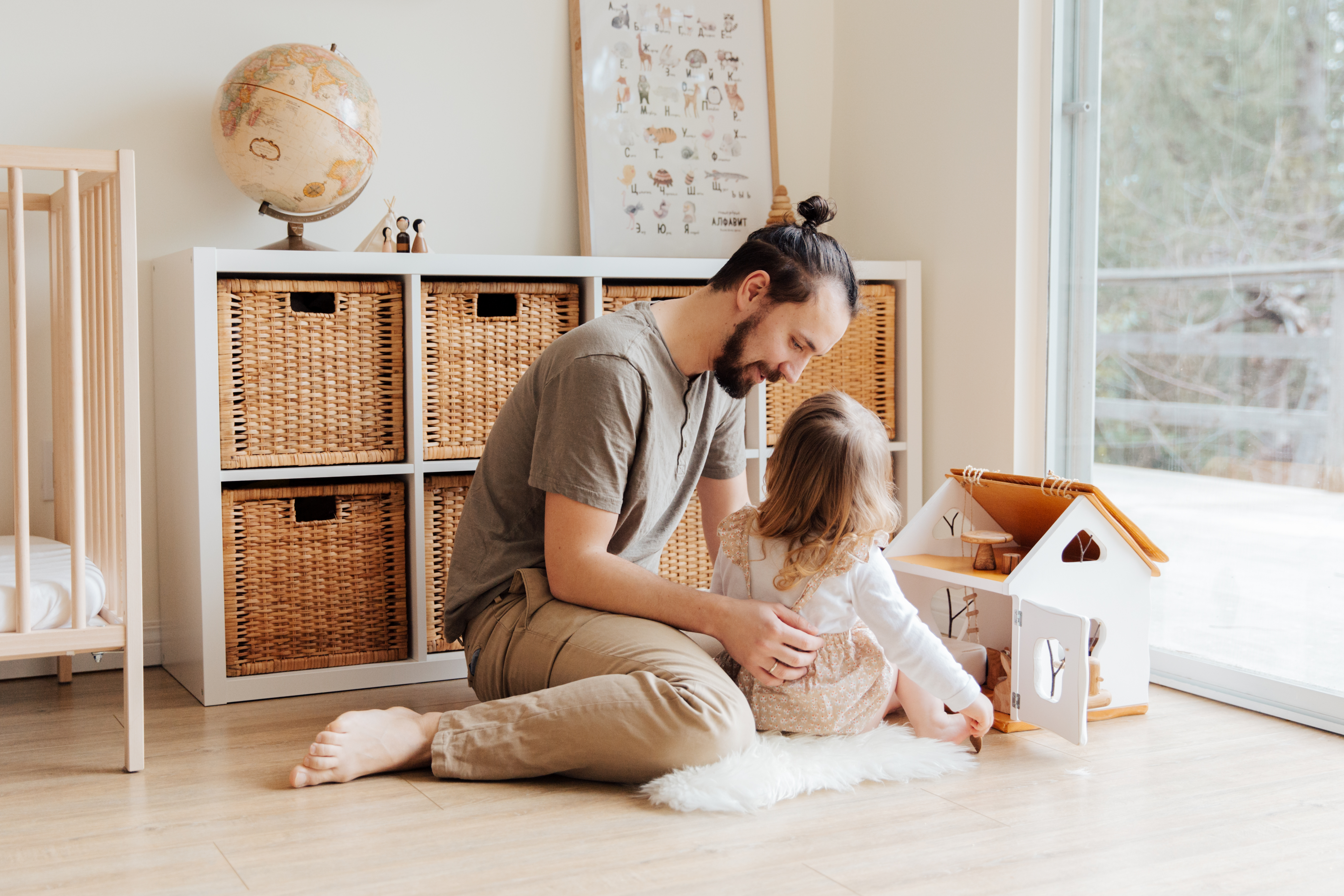
You can adapt to a child’s interests at first and contribute to the activities he enjoys most. Then you can propose something new and see if it is fun for all of you.
For example, hide and seek is always a good idea. Dancing around the house imitating music instruments or singing vocalists can be really cheerful. Or roar those little cars together and think of various noisy and funny sounds. You can also build a city from books or various plastic things you have in the kitchen.
Dr. Laura Markham has a lot of good suggestions as well ( The Family That Plays Together)
Include all the family into the fun of play
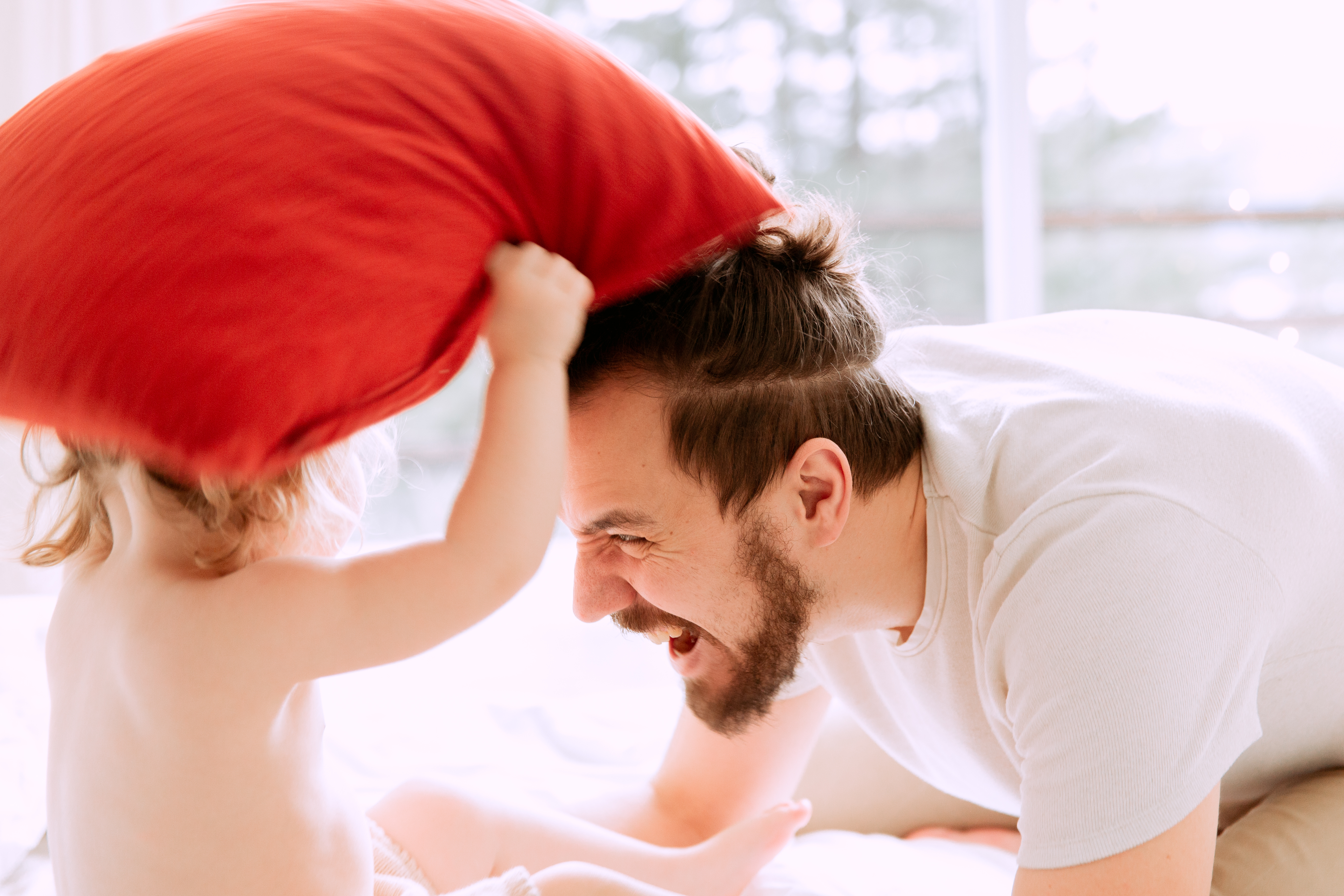
Dr. Laura Markham says that playing all together serves the wonderful way to release all the tensions and to bond to each other by laughing and having fun together. Dr. Markham advises to include games into the family’s rituals and have common activities routinely in this way becoming a happier family.
“From the infectious fun of side-splitting laughter to the exuberance of an impromptu pillow fight, infusing a spirit of joy and playfulness into your home nurtures your family like little else.” – Dr. Laura Markham, The Family That Plays Together
Jessica Joelle Alexander also writes that parents should make the play priority and change their attitude towards it. It ‘s not a lazy and messy activity at all but rather crucial for children, families, and society. Again essential for bonding of families and relieving anxiety.
“Most of us like to keep the house neat and tidy, but that can mean we are hiding away vital playthings. Children don’t see mess, they see a stimulating environment full of tools to help them be creative. Adopting this view should help us leave out toys and craft supplies more easily, even at times when we struggle to see nothing but mess!” – Jessica Joelle Alexander, 10 principles for family play
Patty Wipfler a Founder of Hand in Hand Parenting mentions that acting playfully in everyday situations and avoiding the role of the powerful, bossy and angry grown-up will create amazing relationships within the family where love and empathy thrive.
“Children hunger for this kind of laughter and active fun with you.
It will bring you closer to each other. The more laughter you can elicit from your child through listening in this playful way, the safer she will feel to let you know about other upsets in her life.” – Patty Wipfler, Build connection with your child through play: playlistening
Choose to be a Happy Family
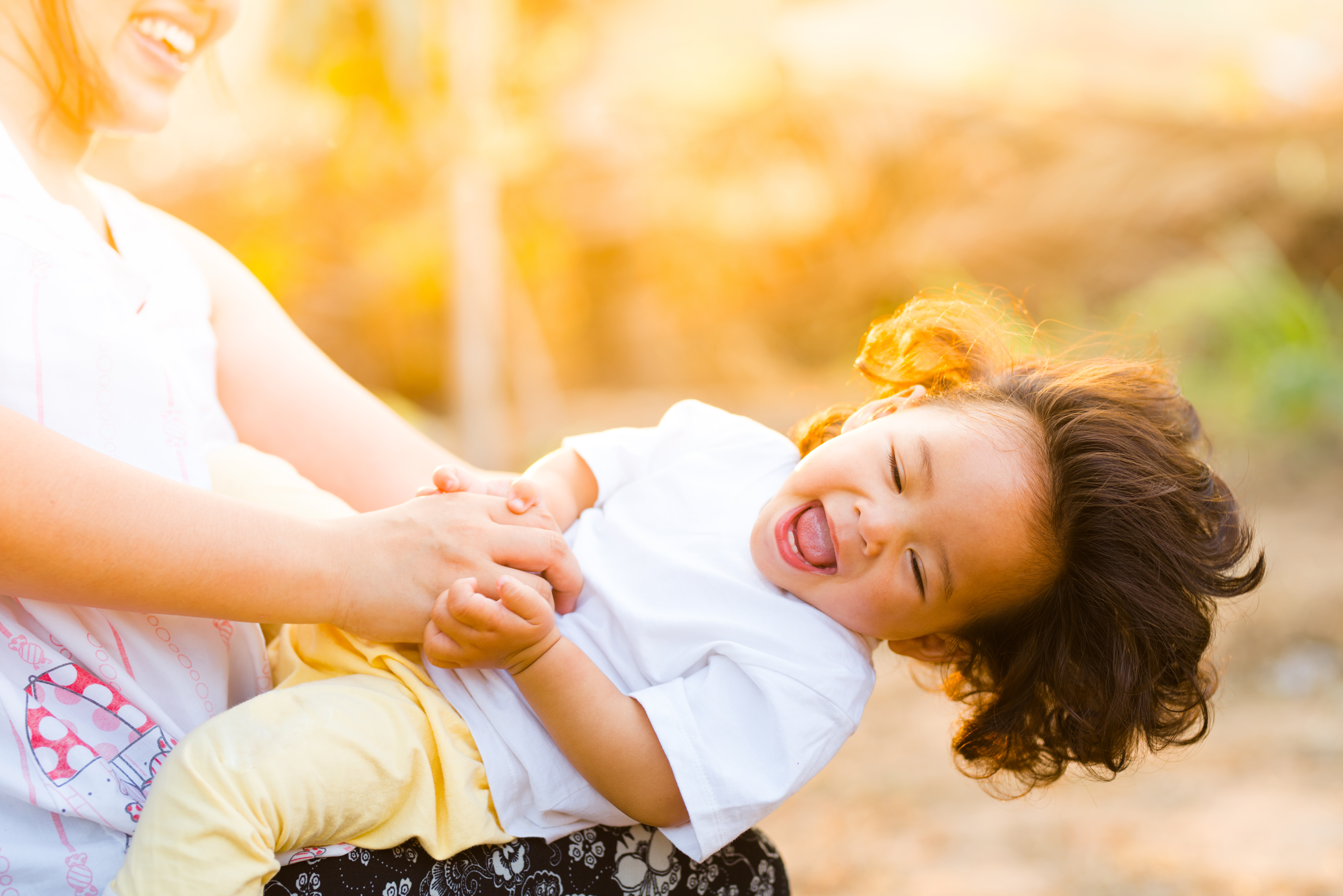
So, in the end, my inner feeling about the greatness of involving myself in the play with my boy was not misleading. Child psychologists highlight the power of play not only to children but their parents as well.
If you manage to dive into the moment and forget for a few minutes all the to-do lists waiting for you in a grown-ups world and lose yourself in the flow of the play with your child while he is still interested in playing with you and when he needs you most, you will be a thousand times happier person than the one who chose to go after all those neverending household routine tasks.
You both will relate to each other and will play out all the unpleasant feelings and emotions gathered during the day or the week. You will have common things to share during the rest of the day. You will create incredible bright memories of the happy childhood which will contribute a lot to the wellbeing of your child for the rest of his life. And for you as a parent, it will be the best moments to remember when your little one will be a grown-up independent person.
And if you catch yourself in the situation that there is no way that you can dive into the pleasure of play, simply watch your child playing for a few moments and you will see how purpose and brightness will come back to your inner world and strengthen you as a parent and as a human being.


